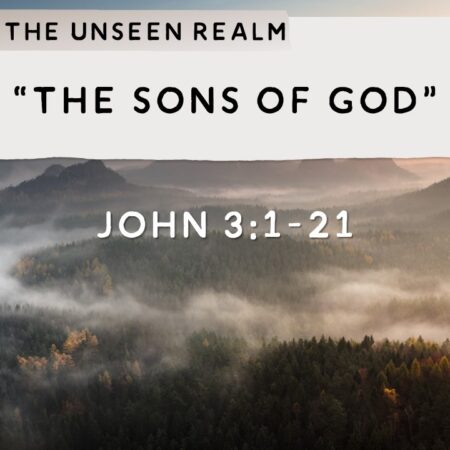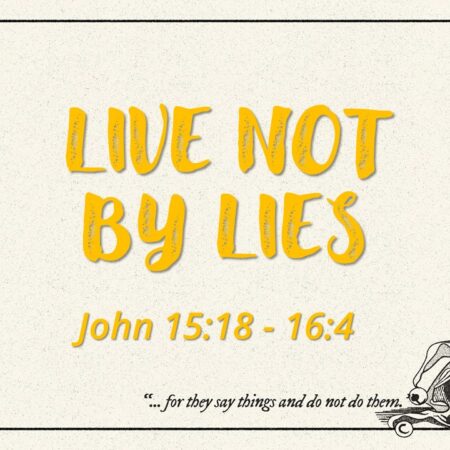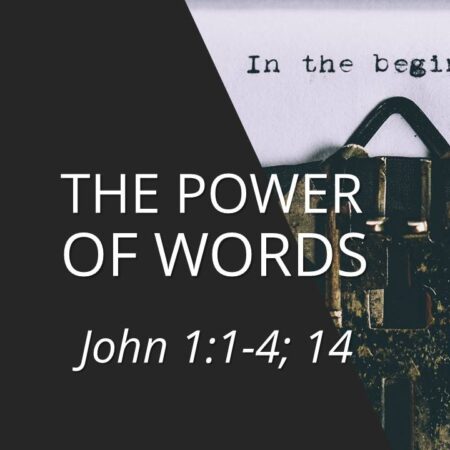John 20:1-30 Hebrews 1:1-14 1 Corinthians 15:12-19 Genesis 3:14-15 Romans 3:21-26 John 3:1-8 John 20:1-9
Sermons on John (Page 2)
John 13:33 Matthew 12:40-42 Luke 18:31-33 Genesis 2:24-25 Genesis 3:8-13 Romans 6:16 Luke 4:1-13 Luke 11:20 John 14:1-31
John 3:1-21 Psalm 89:5-7 Psalm 82 Isaiah 24:21-23 John 3:1-21 John 1:43-51 1 Corinthians 2:6-13
John 20:1-18 Acts 6:8-15; Acts 7:1-4 Genesis 15:1-6 John 1:1; John 1:14; John 8:48-59 Galatians 3:8 Genesis 18:1-5 John 5:19-22; John 16:1-15 Matthew 27:45-51 John 20:11-18
John 8 Hebrews 4:13
In the Epilogue to his “Caesar and Christ (1944), historian Will Durant noted that,
“A great civilization is not conquered from without until it has destroyed itself within. The essential causes of Rome’s decline lay in her people, her morals, her class struggle, her failing trade, her bureaucratic despotism,
her stifling taxes, her consuming wars.”
Lawrence Reed a historian and economist wrote in 2014 an essay titled: The fall of the Republic
I don’t really disagree with Durant’s statement. However, if pressed to describe in one word why the ancient Roman Republic fell, I wouldn’t choose any that Durant mentions here. I would not choose corruption, nor any of the other usual suspects: war, socialism, slavery, the welfare state, envy, civil strife, foreign invasion, erosion of character, taxes, bureaucracy, spending or debt. Those were all important factors, but they were symptomatic rather than causative.
More than anything else, the drawn-out demise of Rome’s 500-year-old Republic must be laid at the doorstep of the most corrosive influence in the affairs of humankind. It’s a mental poison that twists and warps even the best of men and women if they allow it to take root in their souls.
I refer to power—the exercise of control over others. Simply the pursuit of it, whether one ultimately attains it or not, is itself an intoxicant.
Since most people don’t want someone else to control them, one who wishes to control others must sooner or later convince his victims (if he doesn’t kill them first) that it’s good for them to either embrace it or refrain from resisting it. That invariably requires lies and deception and, ultimately, force and violence. The more I observe the ways that power-seekers behave—present company as well as the hordes from history’s dustbin—the more I’m convinced that power is the principal way that pure Evil manifests itself.”
The ESV Study Bible has commentaries on the Roman Empire and the Greco-Roman World at the time of the New Testament.
Under the title: “Religion and Magic” we find this comment:
“Most today think of Roman religion in terms of its pantheon of gods and goddesses, such as Jupiter, Venus, and Mars (or their Greek counterparts Zeus, Aphrodite and Ares). Certainly, this pantheon was central to civic life. Touring an ancient city, one would see dozens of temples (some of immense size) dedicated to such deities. These gods were thought to act as benefactors both to the individual and to the city. Yet, should one neglect these deities, they could become angry and injure the individual or society.”
Hitler’s Monsters: A Supernatural History of the Third Reich”
published 2018 by Eric Kurlander, Professor of History (Author)
“The Nazi fascination with the occult is legendary, yet today it is often dismissed as Himmler’s personal obsession or wildly overstated for its novelty. Preposterous though it was, however, supernatural thinking was inextricable from the Nazi project. The regime enlisted astrology and the paranormal, paganism, Indo-Aryan mythology, witchcraft, miracle weapons, and the lost kingdom of Atlantis in reimagining German politics and society and recasting German science and religion. Even as popular occultism and superstition were intermittently rooted out, suppressed, and outlawed, the Nazis drew upon a wide variety of occult practices and esoteric sciences to gain power, shape propaganda and policy, and pursue their dreams of racial utopia and empire.”
Bestselling author Sidney Kirkpatrick in his book “HITLER’S HOLY RELICS” tells the riveting and never before told true story of how an American college professor hunted down and recovered the most cherished symbols of Hitlers 1000 year Reich before they could become a rallying point in the creation of a Fourth and equally unholy Reich.
“From Paris to Stalingrad, the Nazis systematically plundered all manner of art and antiquities. But the first and most valuable treasures they looted were the Crown Jewels of the Holy Roman Empire.
Anticipating the Allied invasion of Nazi Germany, Reichsführer Heinrich Himmler had ordered a top-secret bunker carved deep into the bedrock beneath Nürnberg castle. Inside the well-guarded chamber was a specially constructed vault that held the plundered treasures Hitler valued the most: the Spear of Destiny (reputed to have been used to pierce Christ’s side while he was on the cross) and the Crown Jewels of the Holy Roman Empire, ancient artifacts steeped in medieval mysticism and coveted by world rulers from Charlemagne to Napoleon. But as Allied bombers rained devastation upon Nürnberg and the U.S. Seventh Army prepared to invade the city Hitler called “the soul of the Nazi Party,” five of the most precious relics, all central to the coronation ceremony of a would-be Holy Roman Emperor, vanished from the vault. Who took them? And why? The mystery remained unsolved for months after the war’s end, until the Supreme Allied Commander, General Dwight D. Eisenhower, ordered Lieutenant Walter Horn, a German-born art historian on leave from U.C. Berkeley, to hunt down the missing treasures.
To accomplish his mission, Horn must revisit the now-rubble-strewn landscape of his youth and delve into the ancient legends and arcane mysticism surrounding the antiquities that Hitler had looted in his quest for world domination. Horn searches for clues in the burnt remains of Himmler’s private castle and follows the trail of neo-Nazi “Teutonic Knights” charged with protecting a vast hidden fortune in plundered gold and other treasure. Along the way, Horn has to confront his own demons: how members of his family and former academic colleagues subverted scholarly research to help legitimize Hitler’s theories of Aryan supremacy and the Master Race. What Horn discovers on his investigative odyssey is so explosive that his final report will remain secret for decades.”
“Hitler’s Holy Relics: A True Story of Nazi Plunder and the Race to Recover the Crown Jewels of the Holy Roman Empire”; Sidney Kirkpatrick, 2011
KEEP YOUR THOUGHTS PURE AND GUARD YOUR MIND AT ALL TIMES. Serving instead of being served is the answer to never LUST FOR POWER.
In September of this year, Rod Dreher published a book titled “Live not by Lies.”
“Identity politics are beginning to encroach on every aspect of life. Civil liberties are increasingly seen as a threat to “safety”. Progressives marginalize conservative, traditional Christians, and other dissenters. Technology and consumerism hasten the possibility of a corporate surveillance state. And the pandemic, having put millions out of work, leaves our country especially vulnerable to demagogic manipulation”. Rod Dreher
Here is the method of resistance he gleaned from those people who lived through totalitarianism:
• SEE: Acknowledge the reality of the situation.
• JUDGE: Assess reality in the light of what we as Christians know to be true.
• ACT: Take action to protect truth.
“Though lies may conceal everything, though lies may control everything, we should be obstinate about this one small point:
let them be in control but without any help from any of us…
It is the easiest thing for us to do and the most destructive for the lies. Because when people renounce lies, it cuts short their existence.” Aleksandr Solzhenitsyn
Even if, Solzhenitsyn continued, “we do not march into the squares and shout the truth out loud… let us refuse to say what we do not think…let us each make a choice: whether to remain consciously a servant of falsehood…or to shrug off the lies and become an honest man worthy of respect from one’s children and contemporaries.”
Such a person, Solzhenitsyn wrote:
•will not sign, write or print in any way a single phrase which in his opinion distorts the truth;
•will not utter such a phrase neither in private conversation nor in public, neither on his own behalf nor at the prompting of someone else, neither in the role of agitator, teacher, educator, nor as an actor;
•will not depict, foster or broadcast a single idea in which he can see a distortion of the truth, whether it be in painting, sculpture, photography, technical science or music;
•will not cite out of context, either orally or in writing, a single quotation to please someone, to feather his own nest, to achieve success in his work, if he does not completely share the idea which is quoted, or if it does not accurately reflect the matter at issue;
•will not allow himself to be compelled to attend demonstrations and meetings if they are contrary to his desire;
•will immediately walk out of a meeting, session, lecture, performance or film if he hears a speaker tell lies, or purvey ideological nonsense or shameless propaganda;
•will not subscribe to or buy a newspaper or magazine in which information is distorted and primary facts are concealed.
While these are not “all possible and necessary ways of avoiding lies,” wrote Solzhenitsyn, “whoever begins to cleanse himself will easily apply the cleansing pattern to other cases.” And then he warns,
“It will not be the same for everybody at first. Some will lose their jobs. But there are no loopholes… Either truth or falsehood: towards spiritual independence or towards spiritual servitude. If we are too frightened, then we should stop complaining that we are being suffocated. We are doing this to ourselves …”
Paul Craig Roberts, an American economist, and a professor of economics at several U.S. universities wrote in a recent article:
“The question each of us needs to ask ourselves, and one another, is why do we get so much misinformation about Covid from public health authorities, political authorities, and press prostitutes?
We get a lot of misinformation from health practitioners, because they get the bogus information from health authorities and from researchers ASSOCIATED WITH BIG PHARMA.
Take the issue of masks.
If the masks people are wearing protected against bacteria, viruses, and other pathogens, there would be no point in N95 and higher rated masks. Medical authorities know this, so why are people told, indeed forced, to wear ineffectual masks?
Public health authorities know that the Covid death rate is greatly exaggerated. In the USA, only 9,000 were due to Covid alone.
So why do public health authorities withhold this information from political authorities and the public, and why do reporters not ferret it out? The information exists. It just isn’t reported.
Covid is being used to serve many interests. Among them, Covid is being used to complete the universal Police State by digitizing money. Once electronic money takes the place of currency, checks, and coins, your financial privacy and your control over your money and wealth will disappear.
Are Americans capable of learning? How many lies do they have to be told before they begin to wonder?” Paul Craig Roberts
Before we go into our biblical text, let me quote Chris Hedges, a war correspondent who witnessed plenty of power struggles:
“Not having to make moral choices frees you from a great deal of anxiety. It frees you from responsibility. And it assures that you always be wrapped in the embrace of the powerful as long as, of course, you will do or dance to he the tune of powers play… When you do what is right, you often have to understand that you are not going to be lauded and praised for it. Making a moral decision always entails risks, certainly to one’s career and to one’s standing in the community.” Chris Hedges
“It is perfectly possible for a man to be out of prison and yet not free- to be under no physical constraint and yet be a psychological captive, compelled to think, feel and act as the representatives of the national state, or of some private interest within a nation wants him to think, feel, and act… To him the walls of his prison are invisible and he believes himself to be free.” Aldous Huxley “A Brave New World Revisited”
“So, you see, that the world is governed by very different personages to what is imagined by those who are not themselves behind the scenes.” Benjamin Disraeli (1801-1884)
“The world is divided into three kinds of people – a very small group that MAKES THINGS HAPPEN, a somewhat larger group that WATCHES THINGS HAPPEN, and a great multitude that NEVER KNOWS WHAT HAS HAPPENED.” Dr. Nicholas Murray Butler (1862-1947)
Pastor Erwin Lutzer in his book subtitled “A defense of Christ in an Age of Tolerance” writes this hypothetical story:
“In A.D. 303, the Emperor Diocletian has issued a new order, requiring all people to attend the religious/political ceremony designed to unify the nation and revive lagging patriotism within the empire. Specifically, this ceremony involves burning a bit of incense and saying simply: CAESAR IS LORD. Those who do this receive a seal of approval; those who don’t might well be put to death.
Christians discussed the issue and what their response should be. The answer is not as obvious as it seems. For one thing, they actually would not have to stop worshiping the true God; after they have sworn their allegiance to Caesar as Lord, they are free to privately worship whatever god they wish. Every religion is tolerated; freedom to choose ones own god is generally accepted. Indeed, there is richness in diversity.
Second, this was not simply a religious decision, but a political one. Caesar was convinced that it was not possible to be a good citizen without affirming his lordship. The argument was that if one had allegiance to a god above Caesar he could not be trusted in time of national emergency, a war, for instance.
Third, this requirement was but once a year. Even if one did not tell a lie, forgiveness through Christ was readily available. Why not argue, as some did, “For a moment my mouth belongs to the Emperor, though my heart always belongs to Christ.”
Rome was cruel. Many converted pagans who were now in the church had observed firsthand the brutality of the Roman citizens.
If Christ were seen as one option among many, Christians could give allegiance to other expressions of the divine. Why not find common ground, the central unity of all religions.
So the choice, strictly speaking, was not whether the Christians should worship Christ or Caesar; it was whether they would worship Christ AND Caesar.”
Edward Gibbon in “The Decline and Fall of the Roman Empire” stated:
“All religions were regarded by the people as EQUALLY TRUE, by the philosophers as EQUALLY FALSE, and by the politicians as EQUALLY USEFUL.”
Worship has its focus on what we do with our lives.
John R.W. Stott
“Christians believe that true worship is the highest and noblest activity of which man, by the grace of God, is capable.”
Chuck Swindoll in his study Bible writes:
“It is attributing supreme worth to God, who alone is worthy of it. When we worship, that’s what we’re doing.
The purpose of the church is to cultivate worshipers. It isn’t a place to make business contacts or to go to check something off the weekly list or to bring your kids so they get something out of it. No, it’s a place to learn about our God so that our worship and understanding of Him become increasingly deeper and more meaningful. It’s a place where we give Him our praise and our gratitude.
Why is worship so important? Because it turns our full attention to the only One worthy of it.”
Jesus was using the element of water as a metaphor to describe a spiritual reality, something that would meet not just a need of the moment but a need for all eternity.
Chuck Swindoll has a wonderful commentary on verses 19-20
“Oh, you’ve been to seminary. You must be extremely smart. Let me ask you something I’ve always wondered about. How do you reconcile the great existential problem of God’s sovereignty and the free will of man?”
Only in her culture, the great debate revolved around the most appropriate place to worship an omnipresent God.
John 4:23-24
But the hour is coming, and is now here, when the true worshipers will worship the Father in spirit and truth,
for the Father is seeking such people to worship him. God is spirit, and those who worship him must worship in spirit and truth.
Christianity Today Magazine published an article titled:
“The Epidemic of Bible Illiteracy in Our Churches”
“Christians claim to believe the Bible is God’s Word. We claim it’s God’s divinely inspired, inerrant message to us. Yet despite this, we aren’t reading it. A recent LifeWay Research study found only 45 percent of those who regularly attend church read the Bible more than once a week. Over 40 percent of the people attending read their Bible occasionally, maybe once or twice a month. Almost 1 in 5 churchgoers say they never read the Bible—essentially the same number who read it every day.”
……Our lack of biblical literacy has led to a lack of biblical doctrine. LifeWay Research found that while 67 percent of Americans believe heaven is a real place, 45 percent believe there are many ways to get there—including 1 in 5 evangelical Christians. More than half of evangelicals (59 percent) believe the Holy Spirit is a force and not a personal being—in contrast to the orthodox biblical teaching of the Trinity being three Persons in one God. As a whole, Americans, including many Christians, hold unbiblical views on hell, sin, salvation, Jesus, humanity, and the Bible itself.
Chuck Swindoll in his commentary on this subject writes:
“When Moses told the story of creation, he drew upon the literary symbol of light to communicate an important truth. After the formation of space and matter, the Lord filled the void and formless earth with light – literal light, yes, but not merely illumination. Before He fashioned physical sources of light on the fourth day – the son, moon, and stars – He filled the universe with the light of His presence, with truth, the foundation upon which everything else would be built. Before giving the world order (dividing day from night, sky from earth, dry land from ocean), the Lord suffused every atom with His truth so that everything would reflect His character.”










